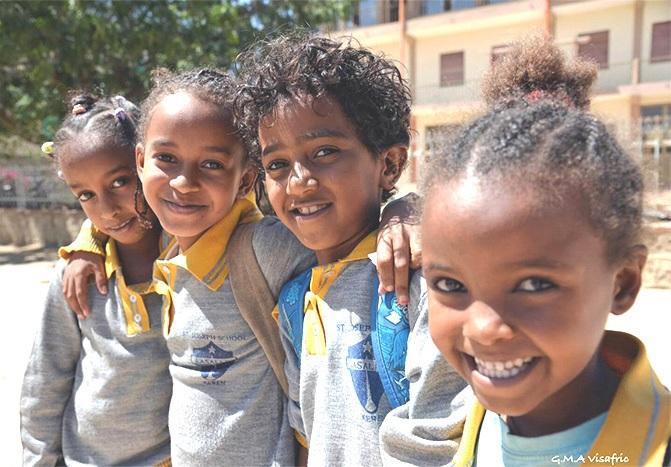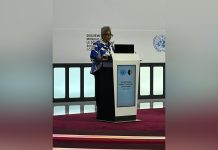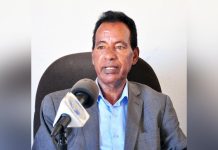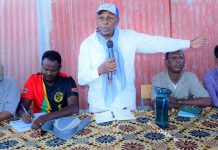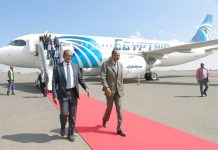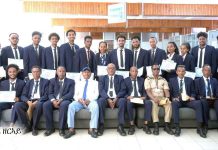Africa-Press – Eritrea. Recently, Eritrea submitted its periodic report on the implementation of the African Charter on the Rights and Welfare of the Child (ACRWC), a landmark treaty adopted in 1990 by the Organization of African Unity (now the African Union) to safeguard and promote the rights of children across the continent. Under the Charter, all State Parties are required to periodically report to the African Committee of Experts on the Rights and Welfare of the Child (ACERWC) on the measures they have taken to give effect to the rights enshrined in the instrument. These reports serve as comprehensive self-assessments, highlighting progress made, challenges encountered, and plans to strengthen the protection and realization of children’s rights.
Eritrea’s submission – its second periodic report – was developed through a broad, participatory process involving key public institutions and civil society stakeholders. This article offers reflections on the report.
One of the most striking themes that emerges from Eritrea’s report is the country’s deep and unwavering commitment to its children. As one of the world’s youngest nations, Eritrea is richly endowed with natural resources and characterized by remarkable ethnolinguistic diversity, giving rise to a vibrant cultural mosaic. Its long and pristine Red Sea coastline offers immense potential for the development of a sustainable blue economy, while its strategic location – situated along one of the world’s busiest maritime routes – positions it as a prospective transshipment and logistics hub of regional significance.
Beyond these natural and geographic advantages, Eritrea’s rich biodiversity, unique socio-cultural and historical heritage, and the warmth and hospitality of its people all point to promising opportunities for tourism and sustainable development. Yet, above and beyond these tangible assets, Eritrea’s most significant resource lies in its people, particularly its children and youth, who embody the country’s hopes for a prosperous and resilient future.
This conviction is deeply rooted in Eritrea’s national vision and policy frameworks. The National Charter, adopted in February 1994 as the country’s foundational guiding document, explicitly emphasizes the centrality of children’s welfare, stating:
“Eritrea should strive to minimize infant mortality and to care for its children. The children of martyrs, in the tens of thousands, who were deprived of the love of their parents, as well as other orphans, must be provided with proper upbringing and care. In Eritrea, the rights of children to education, health, love, safety, play, and to human dignity must be respected.”
This vision continues to inform national policies and programs. In Eritrea’s 2022 Voluntary National Development Report, presented at the United Nations High-Level Political Forum, Minister of Information Yemane GebreMeskel reaffirmed this enduring focus, noting:
“The Eritrean government’s policy is, and has always been, firmly centered on investing in human capital and youth, which are, without question, our most important resource and greatest asset.”
Eritrea’s commitment to children’s rights is also reflected in its international engagements. The first international treaty Eritrea ratified as an independent nation was the Convention on the Rights of the Child (CRC), followed by its ratification of the ACRWC in 1999, steps that underscore a principled dedication to the protection and development of children.
At the national level, recent initiatives build upon an already strong and well-established platform for promoting and protecting the rights and welfare of children. Over the years, Eritrea has developed a solid institutional and policy framework that reflects its commitment to human development, equity, and social inclusion. The most recent policy measures therefore represent a continuation and deepening of this long-term effort.
In 2021, for instance, Eritrea adopted a National Social Protection Policy and a National Social Protection Strategic Plan (2022–2026), designed to provide a more developmental and inclusive approach to social welfare. These frameworks aim to address the socio-economic and structural factors that perpetuate vulnerability and insecurity, with particular attention to the most marginalized groups.
That same year, the Ministry of Labour and Social Welfare (MoLSW) revised the Policy for Disability to strengthen the protection of the rights of children with disabilities. The updated version, translated into Tigrigna in early 2023, has enhanced public understanding of disability rights and improved awareness among institutions and communities alike.
The Ministry of Education (MoE) has likewise taken significant steps to advance inclusive and quality education. Its Sector Strategic Plan (2022–2026) provides a comprehensive framework for delivering educational services nationwide. Complementing this, the Partnership Compact (2023–2027) – produced by the MoE with support from the Global Partnership for Education, a leading international organization that promotes education worldwide – sets out an inclusive and transformative reform agenda to ensure quality learning opportunities for all girls and boys.
Similarly, the Ministry of Health (MoH) has developed several strategic documents to advance children’s and adolescents’ well-being, including the National Health Policy (NHP-2020) and the Third Health Sector Strategic Development Plan (HSSP-III, 2022–2026). In addition, the Comprehensive Strategic Plan (2022–2026) on Sexual and Reproductive Health, Maternal and Newborn Health, Child Health, Adolescent Health, and Healthy Ageing (RMNCAH & HAA) sets national targets and milestones to guide progress toward achieving Universal Health Coverage (UHC).
Most recently, Eritrea acceded to the Convention on the Rights of Persons with Disabilities (CRPD) on 20 December 2024, reaffirming its dedication to inclusivity and ensuring that children with disabilities thoroughly enjoy their rights.
Eritrea’s integrated approach to development has yielded tangible and measurable results. Education is free and compulsory for both boys and girls, with enrolments across all levels having increased substantially and gender gaps narrowing significantly. At the tertiary level, female participation now nearly equals that of males. Youth literacy rates have risen dramatically, with the UN describing Eritrea’s progress in literacy as among the most rapid globally over the past half-century.
In health, services are provided free of charge. Child and maternal mortality rates have fallen sharply, placing Eritrea among the best performers in Africa and wider developing world. Immunization coverage for diseases such as tetanus, measles, rubella, and pertussis ranks among the highest worldwide, while polio has been eradicated. HIV prevalence remains low, and mother-to-child transmission has been virtually eliminated, with steps underway toward formal international accreditation. Malaria, once a leading cause of child mortality, is being aggressively tackled, with a national goal of elimination by 2030.
Crucially, Eritrea has also made significant strides in eliminating harmful traditional practices. Child marriage and female genital mutilation (FGM) are both prohibited by law, with strict enforcement measures in place. Through a multi-sectoral, community-based approach, more and more villages and localities have been officially declared free of FGM and child marriage.
Importantly, Eritrea’s coordinated efforts are also focusing on disadvantaged and remote communities, ensuring that awareness, prevention, and protection measures reach the most vulnerable children. The MoLSW’s social protection strategy prioritizes households hosting vulnerable children, aiming to reduce poverty and enhance resilience through targeted social services, advocacy, and empowerment initiatives.
Beyond health, education, and social protection, progress continues across broader social and cultural spheres, contributing to improvements in living standards and community well-being.
Another critical dimension highlighted through Eritrea’s periodic report is the country’s constructive engagement with regional and international human rights and development mechanisms. This reality stands in contrast to certain misguided and politicized narratives. Eritrea continues to participate in good-faith initiatives and remains firmly committed to the universality, indivisibility, and holistic nature of human rights. While the country rejects selective and politically motivated, country-specific mandates that undermine the principles of objectivity and impartiality, it actively engages in genuine multilateral processes grounded in cooperation and mutual respect.
In addition to the ACRWC reporting mechanism, Eritrea has constructively participated in the Universal Periodic Review (UPR), the Voluntary National Review (VNR) on the Sustainable Development Goals (SDGs) presented at the UN High-Level Political Forum, the Commission on the Status of Women (CSW), and numerous environmental and climate-related fora. These engagements underscore Eritrea’s commitment to tracking progress, addressing challenges, and advancing human rights and sustainable development in a balanced and integrated manner.
Collectively, these efforts reflect Eritrea’s principled approach to international cooperation – one that emphasizes dialogue over confrontation and partnership over politicization – and contribute meaningfully to the shared global vision of a peaceful, just, and rights-based world.
Overall, Eritrea’s second periodic report under the ACRWC reaffirms the country’s steadfast commitment to its children as central actors in shaping the nation’s future. Through sustained investment in education, health, and social protection, a determined fight against harmful traditional practices, and meaningful child participation at all levels, Eritrea continues to build on a strong foundation of inclusivity, equity, and human dignity. Its journey, while ongoing, stands as a testament to the transformative power of national ownership, community engagement, and the unwavering belief that every child deserves the chance to thrive.
shabait
For More News And Analysis About Eritrea Follow Africa-Press


